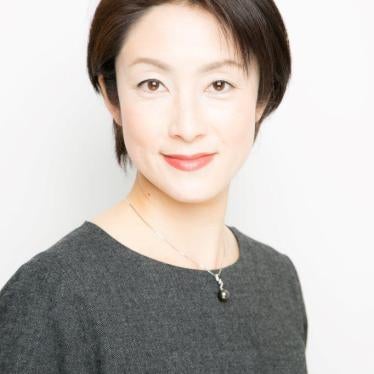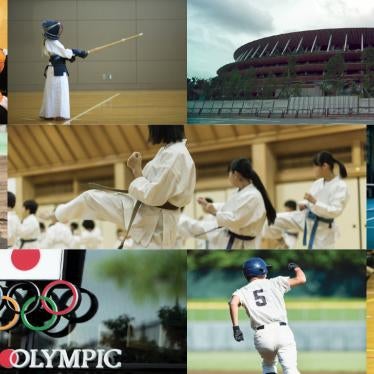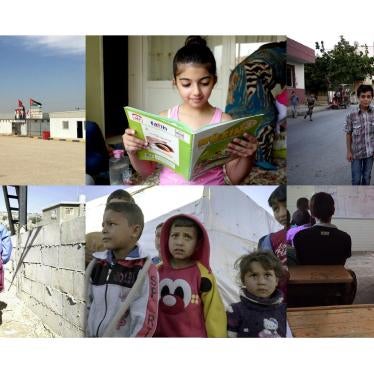Yui is an 8-year-old girl who loves her mother.
However, her mother has become dependent on alcohol, and when she drinks she cuts herself in front of Yui. She never hurts Yui, whose name I have changed to protect her privacy, but sometimes she hits Yui’s father. When they try to take Yui’s mother to the hospital, she resists violently. When she does go to the hospital, she pretends that everything is okay, so the hospital never admits her.
The Japanese administrative authority in charge of protecting children - the Child Guidance Center – thinks that Yui shouldn’t be in this kind of environment. It plans to take her away from her parents, and put her into protective custody. Children under protective custody, or temporary custody, are placed in a facility where they are not allowed to leave, freely see their parents, or go to school. They stay there for one month on average, but sometimes even for several months.
But even if Yui’s mother has problems, Yui still loves her. She tells the people around her, “All I want is for Mama to get help and stop cutting herself. I want to stay with Mama.”
It is not uncommon for guardians -- like Yui’s mother – to reject changing their behavior and to refuse medical treatment. In most of these situations, the Japanese authorities’ general approach is to put children in institutions. There is generally no hearing before an impartial court.
The UN Convention on the Rights of the Child states that “in all actions concerning children…the best interests of the child shall be a primary consideration.” (Article 3.1). However, as Human Rights Watch documented in its 2014 report “Without Dreams,” Japan’s alternative care system frequently does not operate in the child’s best interest.
The Principle of Family-Based Care
The international treaty also guarantees, in Article 7.1, that a child shall have, “as far as possible, the right to know and be cared for by his or her parents.”
The May 2016 revision of Japan’s Child Welfare Act also explicitly state that children themselves have rights and that children “shall be cared for in a family, to have a healthy mind and body.”
Instead of rushing to place children in institutions, the government should give troubled families the support they need to improve the family environment. Since it is usually best for a child’s physical and mental well-being to be in a family setting, any decision to remove a child from their family should require careful consideration.
The current ineffective system
Japan has been dealing with abusive parenting in a uniquely Japanese approach called “administrative guidance.” The authorities review a family’s situation and make recommendations to the parents to change their behavior without court involvement. But there is no way to enforce that advice if the parents ignore it. So the child is either left in an abusive environment or removed, neither of which is a good option for the child. And many Child Guidance Centers have shown themselves indifferent to protecting a child’s right to stay with their family.
The challenge is to find another solution that will protect the child from harm while also protecting their right to be cared for by their parents. There frequently are ways to help a parent change their behavior to create a proper environment for their children.
Yui’s mother is an example of a parent whose behavior could change. In other cases, parents may face intellectual challenges, or simply not be able to cope with the demands of everyday life, even tasks as simple as making breakfast and sending their children off to school. But, like Yui, children in that situation have resisted being taken into the care of the state.
The solution in many cases is for the government to provide the treatment and assistance the parent needs to be able to care for their children while safeguarding the children’s right be cared for by their own parents.
The need for court-based guidance
When “administrative guidance” doesn’t work, the courts should get involved. They should hold an impartial hearing to consider both the parents’ side of the story and the findings of the Child Guidance center and, when needed, issue a legally binding order to parents to make changes in their home conditions. Only if they fail to comply with the court order should the child be removed from their home.
Countries such as the US, Germany, France, and the UK already have child welfare systems in which courts are involved in guiding parents.
An advisory committee at Japan’s Health, Labor and Welfare Ministry has been discussing whether Japan should also introduce a new system that involves courts in directly guiding parents for those families in which children live at home.
Following the committee’s discussions, the Child Welfare Act was revised in June. However, the system for the court to directly advise parents was not included. While the involvement of the court was slightly strengthened, it is not based on families with children at home, and the Child Guidance Center still is the one giving advice to parents, rather than courts. It fails to reflect the reality that many parents are not responding to these advices from Child Guidance Centers.
The proposed revision requires approval by the Family Court if the heads of child guidance centers or prefectural governors wish to extend a child’s temporary custody. However, the proposal falls short of involving the court in any decision to separate children from their parents in the first place.
Changing the system won’t be easy. Even some members of the advisory committee opposed involving courts in the process. Some legal scholars oppose this approach as well.
But the current practice of family separation by administrative authorities without ensuring the parents to express their views at a proper hearing may be more abusive, for both children and parents. A new system of court involvement would be more respectful of children’s rights to be cared by their own parents and would ensure due process for their parents.
The future of the children’s social welfare system
What has happened to Yui is unfortunately taking place all over Japan. It is high time for Japan to stop unnecessary and hasty separation of children from their parents. For the sake of a child’s happiness and welfare, separation should be the last resort.
Japan should introduce a new system that will enable courts to supervise parents and that will overhaul the current weak family support system.
The role of courts in the Japanese child welfare system should change. Court involvement should no longer be the exception. The courts need to emerge as the protector of children’s rights.








